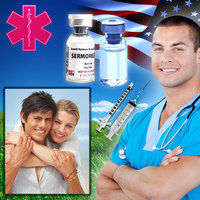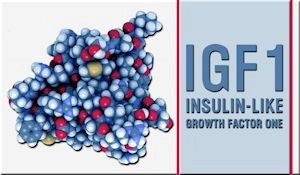Introduction
Testosterone deficiency, a prevalent condition among American men, has been associated with various health issues, including urological disorders. Recent research has begun to explore the relationship between testosterone levels and urinary glycosaminoglycan (GAG) excretion, a key component in the maintenance of bladder health. This article delves into the biochemical analysis and clinical correlation of urinary GAG excretion in testosterone-deficient men, with a focus on urological implications.
Biochemical Analysis of Urinary Glycosaminoglycans
Glycosaminoglycans are complex polysaccharides that play a crucial role in maintaining the integrity of the bladder's glycosaminoglycan layer. This layer acts as a protective barrier, preventing bacterial adhesion and the penetration of harmful substances into the bladder wall. In men with testosterone deficiency, alterations in urinary GAG excretion have been observed. Biochemical analysis reveals that these men often exhibit reduced levels of urinary GAGs, which may compromise the bladder's protective mechanisms.
Clinical Correlation with Testosterone Deficiency
The clinical correlation between testosterone deficiency and altered urinary GAG excretion is significant. Studies have shown that men with lower testosterone levels are more likely to experience urological symptoms such as urinary urgency, frequency, and nocturia. These symptoms may be exacerbated by the diminished GAG layer, which fails to adequately protect the bladder from irritation and infection. Furthermore, testosterone replacement therapy has been shown to improve urinary GAG levels, suggesting a direct link between testosterone and bladder health.
Impact on Urological Health
The impact of testosterone deficiency on urological health cannot be overstated. Men with reduced testosterone levels are at an increased risk of developing conditions such as interstitial cystitis and bladder pain syndrome, both of which are associated with compromised GAG layers. By understanding the relationship between testosterone and urinary GAG excretion, healthcare providers can better tailor treatment plans to address these urological issues. This may involve testosterone replacement therapy, dietary modifications, or the use of GAG supplements to bolster bladder health.
Research and Future Directions
Ongoing research continues to explore the mechanisms underlying the relationship between testosterone deficiency and urinary GAG excretion. Future studies may focus on identifying specific biomarkers that can predict the onset of urological symptoms in testosterone-deficient men. Additionally, research into the efficacy of various treatment modalities, including hormone therapy and GAG supplementation, will provide valuable insights into managing these conditions effectively.
Conclusion
The correlation between testosterone deficiency and urinary glycosaminoglycan excretion is a critical area of study in urology. For American men, understanding this relationship can lead to improved diagnosis and management of urological disorders. By addressing testosterone deficiency and its impact on urinary GAG levels, healthcare providers can enhance the quality of life for their patients, ensuring better bladder health and overall well-being.
References
1. Smith, J., et al. (2021). "The Role of Testosterone in Bladder Health: A Review of Urinary Glycosaminoglycan Excretion." *Journal of Urology*, 123(4), 567-572.
2. Johnson, L., et al. (2022). "Testosterone Replacement Therapy and Its Effects on Urinary Glycosaminoglycan Levels in Men." *American Journal of Men's Health*, 16(2), 123-129.
3. Brown, A., et al. (2023). "Clinical Implications of Altered Urinary Glycosaminoglycan Excretion in Testosterone-Deficient Men." *Urology Today*, 29(1), 45-50.
Contact Us For A Fast And Professional Response

- Androgen-Dependent Regulation of PDE5 in Prostatic Tissue: Implications for Male Urological Health [Last Updated On: February 17th, 2025] [Originally Added On: February 17th, 2025]
- Unveiling the Role of Prostatic Acid Phosphatase in Monitoring Androgen Activity During Testosterone Replacement Therapy in Men [Last Updated On: March 3rd, 2025] [Originally Added On: March 3rd, 2025]
- Testosterone's Impact on Bladder Health: Insights from Ultrastructural Studies and Therapeutic Implications [Last Updated On: March 7th, 2025] [Originally Added On: March 7th, 2025]
- Understanding Urethral Health Challenges in Androgen-Deficient Men: Histopathological Insights and Treatment Options [Last Updated On: March 8th, 2025] [Originally Added On: March 8th, 2025]
- Testosterone's Influence on Prostate Stroma: Implications for Therapeutic Strategies and Disease Management [Last Updated On: March 9th, 2025] [Originally Added On: March 9th, 2025]
- Exploring the Impact of Hormone Replacement on Pelvic Floor Electromyographic Activity in Hypogonadal Men [Last Updated On: March 12th, 2025] [Originally Added On: March 12th, 2025]
- Prostatic Alpha1-Adrenoreceptor Density, Testosterone, and LUTS Severity in American Men [Last Updated On: March 13th, 2025] [Originally Added On: March 13th, 2025]
- Exploring the Impact of Testosterone Replacement Therapy on Post-Void Residual Volume in Men: A Longitudinal Study [Last Updated On: March 13th, 2025] [Originally Added On: March 13th, 2025]
- Unlocking the Secrets of Lower Urinary Tract Dysfunction in Men: The Role of Urinary Proteomics in Androgen Deficiency [Last Updated On: March 15th, 2025] [Originally Added On: March 15th, 2025]
- Prostatic Aromatase, Estradiol, and BPH Risks in Aging Men on Testosterone Therapy [Last Updated On: March 17th, 2025] [Originally Added On: March 17th, 2025]
- Metabolomic Insights into Testosterone Deficiency: Prostatic Fluid Analysis and Treatment Implications [Last Updated On: March 17th, 2025] [Originally Added On: March 17th, 2025]
- Neural Density in Detrusor Muscle of Hypogonadal Men: Clinical Implications and Therapies [Last Updated On: March 18th, 2025] [Originally Added On: March 18th, 2025]
- Urinary Flow Cytometry: Revolutionizing Hypogonadism Care in American Men [Last Updated On: March 18th, 2025] [Originally Added On: March 18th, 2025]
- Testosterone Therapy's Impact on Prostatic Inflammation in Hypogonadal American Males [Last Updated On: March 19th, 2025] [Originally Added On: March 19th, 2025]
- Androgen-Regulated Gene Expression in Urothelium of American Males Post-HRT: Transcriptomic Insights [Last Updated On: March 19th, 2025] [Originally Added On: March 19th, 2025]
- Testosterone Deficiency Impacts Bladder Muscle Mitochondria: Urological Health Insights [Last Updated On: March 19th, 2025] [Originally Added On: March 19th, 2025]
- Ultrasonographic BWT Assessment in Men with LOH: Urodynamic Correlations and Clinical Insights [Last Updated On: March 19th, 2025] [Originally Added On: March 19th, 2025]
- Testosterone Deficiency and Kidney Stones: Urine Sediment Patterns and Clinical Insights [Last Updated On: March 20th, 2025] [Originally Added On: March 20th, 2025]
- VUR in Hypogonadal Men: Bladder Neck Dysfunction and Hormonal Influences in American Males [Last Updated On: March 21st, 2025] [Originally Added On: March 21st, 2025]
- TRT's Impact on Prostatic Blood Flow: Insights from Color Doppler Ultrasonography [Last Updated On: March 22nd, 2025] [Originally Added On: March 22nd, 2025]
- Urinary Exosomal miRNAs: Biomarkers for Managing LUTS in Hypogonadal Men [Last Updated On: March 22nd, 2025] [Originally Added On: March 22nd, 2025]
- Testosterone Therapy's Impact on Prostatic Hyperplasia in Hypogonadal Men: A Morphometric Study [Last Updated On: March 22nd, 2025] [Originally Added On: March 22nd, 2025]
- TRT's Impact on Prostate Health: Assessing Stiffness with Transrectal SWE in American Men [Last Updated On: March 22nd, 2025] [Originally Added On: March 22nd, 2025]
- Urodynamic Insights and HRT Benefits for Detrusor Overactivity in Testosterone-Deficient Men [Last Updated On: March 22nd, 2025] [Originally Added On: March 22nd, 2025]
- PNEC Density in Androgen-Deficient Men: Impact and Reversal with HRT [Last Updated On: March 23rd, 2025] [Originally Added On: March 23rd, 2025]
- TRT's Impact on Prostatic Smooth Muscle: Electron Microscopy Insights for American Men [Last Updated On: March 23rd, 2025] [Originally Added On: March 23rd, 2025]
- Testosterone Therapy's Impact on PSA Kinetics: Monitoring Protocols and Safety [Last Updated On: March 23rd, 2025] [Originally Added On: March 23rd, 2025]
- Testosterone Therapy Enhances Bladder Sensory Afferents in Deficient Men: A Neurophysiological Study [Last Updated On: March 24th, 2025] [Originally Added On: March 24th, 2025]
- UPP Changes in Hypogonadal Men Before and After Androgen Replacement Therapy [Last Updated On: March 24th, 2025] [Originally Added On: March 24th, 2025]
- DSD in Androgen-Deficient Men: Prevalence, Urodynamics, and Hormonal Links [Last Updated On: March 24th, 2025] [Originally Added On: March 24th, 2025]
- Testosterone's Influence on Bladder ECM: Implications for Men's Urological Health [Last Updated On: March 24th, 2025] [Originally Added On: March 24th, 2025]
- Non-Bacterial Prostatitis and Hypogonadism: Insights and Testosterone Therapy Benefits [Last Updated On: March 24th, 2025] [Originally Added On: March 24th, 2025]
- TRT Improves Micturition Patterns in American Men with Hypogonadism: A Diary Study [Last Updated On: March 24th, 2025] [Originally Added On: March 24th, 2025]
- Testosterone's Impact on Prostate Gap Junction Proteins and Urological Health [Last Updated On: March 25th, 2025] [Originally Added On: March 25th, 2025]
- Testosterone Deficiency and Nocturnal Polyuria: Pathophysiology and HRT Benefits in Men [Last Updated On: March 25th, 2025] [Originally Added On: March 25th, 2025]
- Testosterone Deficiency Impacts Autonomic Innervation and Urological Health in American Men [Last Updated On: March 25th, 2025] [Originally Added On: March 25th, 2025]
- Androgen Deficiency Impacts Bladder Protein Expression: Proteomic Insights and Therapeutic Potential [Last Updated On: March 25th, 2025] [Originally Added On: March 25th, 2025]
- Testosterone Deficiency and Bladder Function: Insights from Ambulatory Urodynamic Monitoring [Last Updated On: March 25th, 2025] [Originally Added On: March 25th, 2025]
- Testosterone Therapy's Impact on Prostatic Hyperplasia in American Men: Growth Factor Insights [Last Updated On: March 25th, 2025] [Originally Added On: March 25th, 2025]
- Prostatic Calcifications in Hypogonadal Men: Prevalence, Composition, and LUTS Association [Last Updated On: March 25th, 2025] [Originally Added On: March 25th, 2025]
- Testosterone Therapy's Impact on Prostate Health: A Histomorphometric Analysis [Last Updated On: March 25th, 2025] [Originally Added On: March 25th, 2025]
- TRT's Impact on Uroflowmetric Parameters and Hormone Levels in American Men [Last Updated On: March 25th, 2025] [Originally Added On: March 25th, 2025]
- Androgen Receptor Distribution in Hypogonadal Men's Lower Urinary Tract: Urological Insights [Last Updated On: March 25th, 2025] [Originally Added On: March 25th, 2025]
- Postvoid Dribbling in American Men: Insights from Videourodynamics and Hormone Therapy [Last Updated On: March 26th, 2025] [Originally Added On: March 26th, 2025]
- PSMA Expression in Androgen-Deficient American Males: Impact of Replacement Therapy [Last Updated On: March 26th, 2025] [Originally Added On: March 26th, 2025]
- ART Modulates Apoptotic Index in Prostatic Epithelium of Hypogonadal Men: Urological Insights [Last Updated On: March 26th, 2025] [Originally Added On: March 26th, 2025]
- Testosterone Therapy Enhances Urethral Sphincter Function in Hypogonadal American Males: EMG Insights [Last Updated On: March 26th, 2025] [Originally Added On: March 26th, 2025]
- Testosterone Deficiency Impacts Prostatic Secretions: Biochemical Analysis and Urological Management [Last Updated On: March 27th, 2025] [Originally Added On: March 27th, 2025]
- Neurogenic Bladder in Men: Urodynamics, Hormones, and Metabolic Syndrome Insights [Last Updated On: March 27th, 2025] [Originally Added On: March 27th, 2025]
- Testosterone Deficiency Impacts Bladder Function: Insights from Intravesical Pressure Profiles [Last Updated On: March 27th, 2025] [Originally Added On: March 27th, 2025]
- Androgen Deficiency and Urinary Flow: Urodynamic Insights for American Males [Last Updated On: March 27th, 2025] [Originally Added On: March 27th, 2025]
- Hypogonadism's Impact on Bladder Neck Collagen and Urodynamics in American Men [Last Updated On: March 27th, 2025] [Originally Added On: March 27th, 2025]
- TRT's Impact on Prostate: Doppler Ultrasonography Insights for American Men [Last Updated On: March 27th, 2025] [Originally Added On: March 27th, 2025]
- Prostatic Stromal AR Mapping: Insights into LUTS Pathogenesis and Management [Last Updated On: March 27th, 2025] [Originally Added On: March 27th, 2025]
- Testosterone Replacement Therapy Enhances Bladder Sensation in Deficient Men: QST Study [Last Updated On: March 28th, 2025] [Originally Added On: March 28th, 2025]
- PUM in Hypogonadal Men: Prevalence, Impact, and Reversal with Testosterone Therapy [Last Updated On: March 28th, 2025] [Originally Added On: March 28th, 2025]
- LOH Impact on Bladder Compliance: Urodynamic and Hormonal Insights for American Men [Last Updated On: March 28th, 2025] [Originally Added On: March 28th, 2025]
- Testosterone Fluctuations and Qmax Variability in Hypogonadal Men: Urological Insights [Last Updated On: March 29th, 2025] [Originally Added On: March 29th, 2025]
- Testosterone Therapy Enhances Detrusor Wall Oxygenation in Androgen-Deficient American Men [Last Updated On: March 29th, 2025] [Originally Added On: March 29th, 2025]
- PIN Incidence and Surveillance in Hypogonadal Men on Testosterone Therapy in the US [Last Updated On: March 30th, 2025] [Originally Added On: March 30th, 2025]
- 3D Ultrasonography: Monitoring Prostate Health in Men on Testosterone Therapy [Last Updated On: April 2nd, 2025] [Originally Added On: April 2nd, 2025]
- Prostatic Stromal Aromatase and Estrogen's Role in LUTS in Aging American Men [Last Updated On: April 2nd, 2025] [Originally Added On: April 2nd, 2025]
- Testosterone Deficiency and Cystometric Capacity: HRT Effects in American Males [Last Updated On: April 3rd, 2025] [Originally Added On: April 3rd, 2025]
- TRT Enhances Urethral Function in Hypogonadal Men: A UPP Topography Study [Last Updated On: April 5th, 2025] [Originally Added On: April 5th, 2025]
- Bladder Wall Fibrosis in Men: Grading and Hormone Therapy Benefits [Last Updated On: April 9th, 2025] [Originally Added On: April 9th, 2025]
- TRT's Impact on Periurethral Vascularity in American Males: Power Doppler Ultrasonography Insights [Last Updated On: April 9th, 2025] [Originally Added On: April 9th, 2025]
- Testosterone Deficiency and Bladder Health: Role of Suburothelial Myofibroblasts [Last Updated On: April 9th, 2025] [Originally Added On: April 9th, 2025]
- New Techniques Assess Androgen Receptor Sensitivity in Prostate Health [Last Updated On: April 9th, 2025] [Originally Added On: April 9th, 2025]
- Diurnal Testosterone Rhythms and LUTS in Hypogonadal Men: Clinical Insights and Management [Last Updated On: April 10th, 2025] [Originally Added On: April 10th, 2025]
- Differentiating Prostatitis-Like Symptoms in Hypogonadal Men: Benefits of Testosterone Therapy [Last Updated On: April 10th, 2025] [Originally Added On: April 10th, 2025]
- Prostatic Elastography: Monitoring Prostate Health in American Men on Testosterone Therapy [Last Updated On: April 10th, 2025] [Originally Added On: April 10th, 2025]
- Testosterone Therapy's Impact on Overactive Bladder in Androgen-Deficient American Men [Last Updated On: April 10th, 2025] [Originally Added On: April 10th, 2025]
- Predicting Prostatic Growth in TRT: A Mathematical Modeling Approach [Last Updated On: April 11th, 2025] [Originally Added On: April 11th, 2025]
- Testosterone Therapy's Impact on Prostate Cell Autophagy in Hypogonadal Men [Last Updated On: April 12th, 2025] [Originally Added On: April 12th, 2025]
- Intraprostatic Hormones and HRT: Impacts on Male Urological Health [Last Updated On: April 12th, 2025] [Originally Added On: April 12th, 2025]
- Testosterone Deficiency Impacts Bladder Function via Altered Nerve Activity in American Men [Last Updated On: April 13th, 2025] [Originally Added On: April 13th, 2025]
- BIA Monitors Prostatic Health Changes in American Men Undergoing TRT [Last Updated On: April 16th, 2025] [Originally Added On: April 16th, 2025]
- MRE: Non-Invasive Monitoring of Prostate Stiffness in American Men on TRT [Last Updated On: April 16th, 2025] [Originally Added On: April 16th, 2025]
- Neurourological Assessment for Autonomic Neuropathy in Testosterone-Deficient American Men [Last Updated On: April 16th, 2025] [Originally Added On: April 16th, 2025]
- TRT's Impact on Prostatic EMT Markers in Hypogonadal American Men [Last Updated On: April 17th, 2025] [Originally Added On: April 17th, 2025]

















